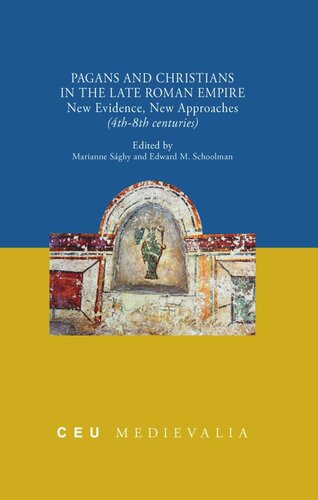

Most ebook files are in PDF format, so you can easily read them using various software such as Foxit Reader or directly on the Google Chrome browser.
Some ebook files are released by publishers in other formats such as .awz, .mobi, .epub, .fb2, etc. You may need to install specific software to read these formats on mobile/PC, such as Calibre.
Please read the tutorial at this link: https://ebookbell.com/faq
We offer FREE conversion to the popular formats you request; however, this may take some time. Therefore, right after payment, please email us, and we will try to provide the service as quickly as possible.
For some exceptional file formats or broken links (if any), please refrain from opening any disputes. Instead, email us first, and we will try to assist within a maximum of 6 hours.
EbookBell Team

0.0
0 reviewsDo the terms 'pagan' and 'Christian,' 'transition from paganism to Christianity' still hold as explanatory devices to apply to the political, religious and cultural transformation experienced Empire-wise? Revisiting 'pagans' and 'Christians' in Late Antiquity has been a fertile site of scholarship in recent years: the paradigm shift in the interpretation of the relations between 'pagans' and 'Christians' replaced the old 'conflict model' with a subtler, complex approach and triggered the upsurge of new explanatory models such as multiculturalism, cohabitation, cooperation, identity, or group cohesion. This collection of essays, inscribes itself into the revisionist discussion of pagan-Christian relations over a broad territory and time-span, the Roman Empire from the fourth to the eighth century. A set of papers argues that if 'paganism' had never been fully extirpated or denied by the multiethnic educated elite that managed the Roman Empire, 'Christianity' came to be presented by the same elite as providing a way for a wider group of people to combine true philosophy and right religion. The speed with which this happened is just as remarkable as the long persistence of paganism after the sea-change of the fourth century that made Christianity the official religion of the State. For a long time afterwards, 'pagans' and 'Christians' lived 'in between' polytheistic and monotheist traditions and disputed Classical and non-Classical legacies.